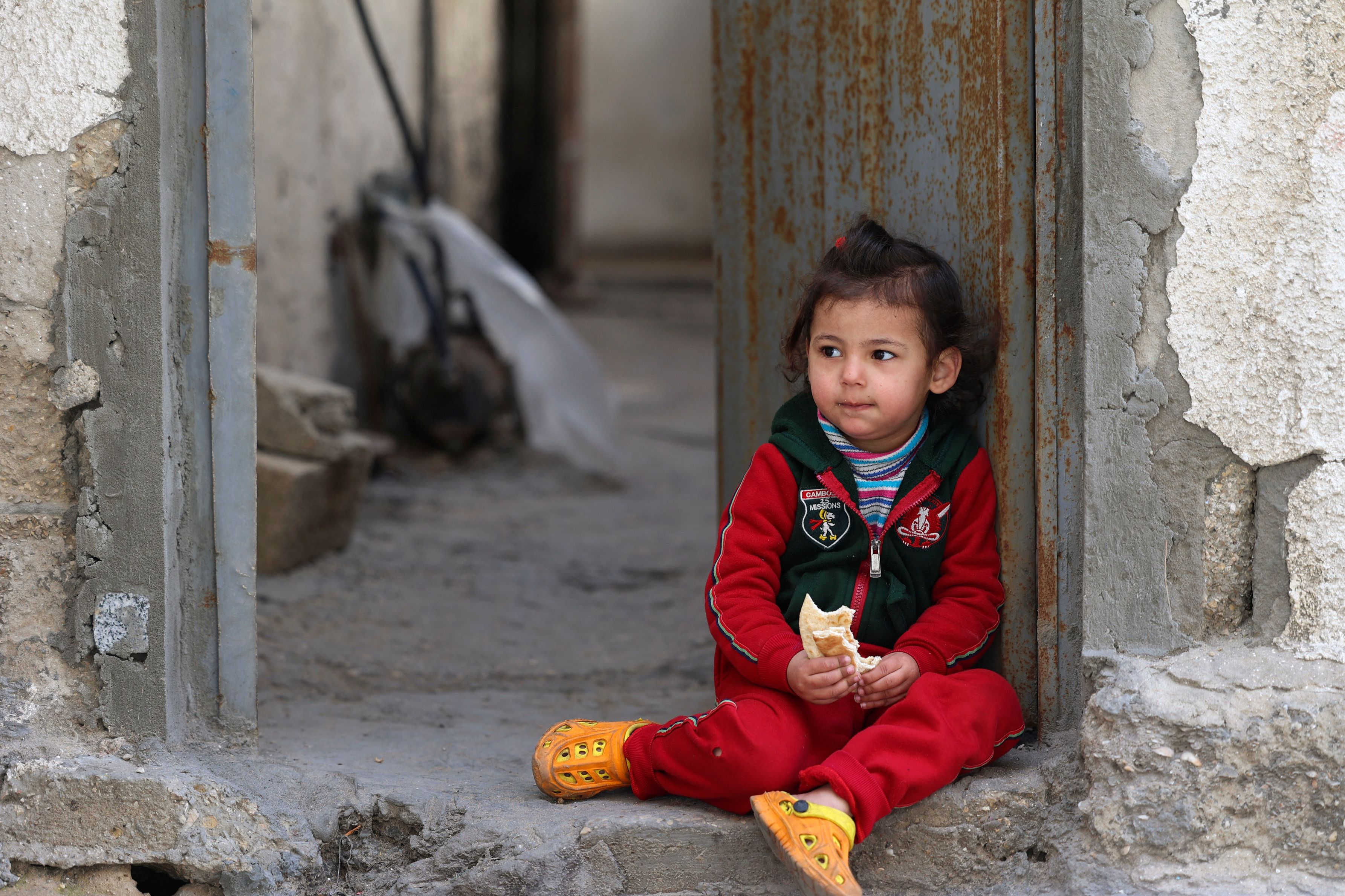There’s a stark contrast between media coverage of Ukraine and Palestine – have you noticed?
Palestinians already know the extent to which we are dehumanised and our narrative marginalised, but watching the Ukraine coverage has served as a reminder of the disparity and double standards, writes Rafeef Ziadah


Like everyone watching the news over the last month, I have been deeply moved by scenes of refugees fleeing the violence in Ukraine, and the destruction visited upon Ukrainian towns and cities.
As someone who has worked with refugees all my life, such images are unfortunately not unfamiliar to me. The biggest surprise, however, has been how such appalling events are reported.
Not long ago, refugees from countries like Iraq and Syria were attempting to cross the English Channel live on British television. This dehumanising spectacle was accompanied by senior politicians competing for who could sound “‘toughest” in the face of this “threat”.
Now, Ukrainian refugees are being offered the dignified media coverage they undoubtedly deserve – coverage that has long been denied to those coming from countries which may be further away, but where British institutions and arms companies have been and currently are very much present.
I am Palestinian and, like so many other Palestinians, I have been astonished at the contrast in media coverage. Indeed, this topic of conversation comes up almost daily among Palestinians watching events unfold in Ukraine.
We know what it’s like to be invaded, bombarded and occupied – we also know what it’s like to mobilise, resist, and appeal for solidarity. What we have not experienced, particularly from western media outlets, is comparable supportive coverage.
A year ago, Palestinians were out in the streets of Jerusalem, raising their voices and putting their bodies on the line in protest at plans to expel yet more Palestinian families from their homes in Sheikh Jarrah.
Over the following weeks, Israeli occupation forces brutalised Palestinians in Jerusalem’s Old City and inside the Al-Aqsa Mosque compound – and then, in the Gaza Strip, as high-tech missiles and bombs rained down on the occupied, blockaded and fenced-in enclave.
Palestinians have seen multiple, devastating offensives such as this. For those on the receiving end, it is an overwhelming horror. For those watching from a distance, there is the trauma of watching video clips of destruction – and anger at the dehumanisation of the occupied.
The Israeli army’s talking points – created purely to justify and excuse killing and destruction – are uncritically repeated, rather than being treated with the derision they deserve.
Even when the Israeli army’s talk of “human shields” or “targeting terrorists” is called into question, western media so often frames the events as two “equal sides” trapped in a “cycle of violence”. But just because Israeli authorities have developed reams of legal-sounding excuses for bombing families as they sit in their homes, this doesn’t diminish the atrocity of what is happening.
In the western media’s coverage of the war in Ukraine, there is a clear framework of invader and invaded, occupier and occupied. Every particular development – from Russian military actions to Ukrainians taking up arms – is reported on through this basic framework.
But when it comes to Palestine, and a decades-old, exhaustively documented regime of colonialism, military rule and apartheid, we hear the same tired refrain of “this is too complicated”.
This double standard has not just been played out in the media, of course. Palestinians have also watched as states and institutions have leapt to impose sanctions and other punitive measures against Russia – including the same politicians who stigmatise our appeals for boycotts as counterproductive and the same universities who dismiss our calls to end complicity in Israeli apartheid.
Indeed, the Palestinian call for Boycott, Divestment, Sanctions (BDS) compares favourably – with respect to its careful, complicity-focused moral integrity – to some of the confused steps taken by way of protesting Russia’s invasion.
To keep up to speed with all the latest opinions and comment, sign up to our free weekly Voices Dispatches newsletter by clicking here
Palestinians already know all too well the extent to which we are dehumanised and our narrative marginalised or mocked in western media – but watching the Ukraine coverage has served as a truly stark reminder of the disparity and double standards.
As has been widely noted on social media, the disparity in coverage of Ukraine versus Palestine (and other countries) has actually been highlighted – uncritically and unintentionally – by a number of western journalists in explicitly racialised terms. War is callously described as something inherent to the Middle East – atrocities happen over there, not here.
But it is not just about skin colour and Ukrainians “looking like Europeans”. The double standard is also a reflection of western foreign policy, and the ways in which such policies and priorities can be reflected in media coverage.
While my thoughts continue to be with all refugees fleeing violence, I hope that Palestinian demands – of governments and of journalists – will now be heeded to end complicity in Israeli apartheid and cover, compassionately and fairly, our struggle for freedom.
Dr Rafeef Ziadah is Palestinian poet and a lecturer in politics and public policy at Kings College London






Join our commenting forum
Join thought-provoking conversations, follow other Independent readers and see their replies
Comments